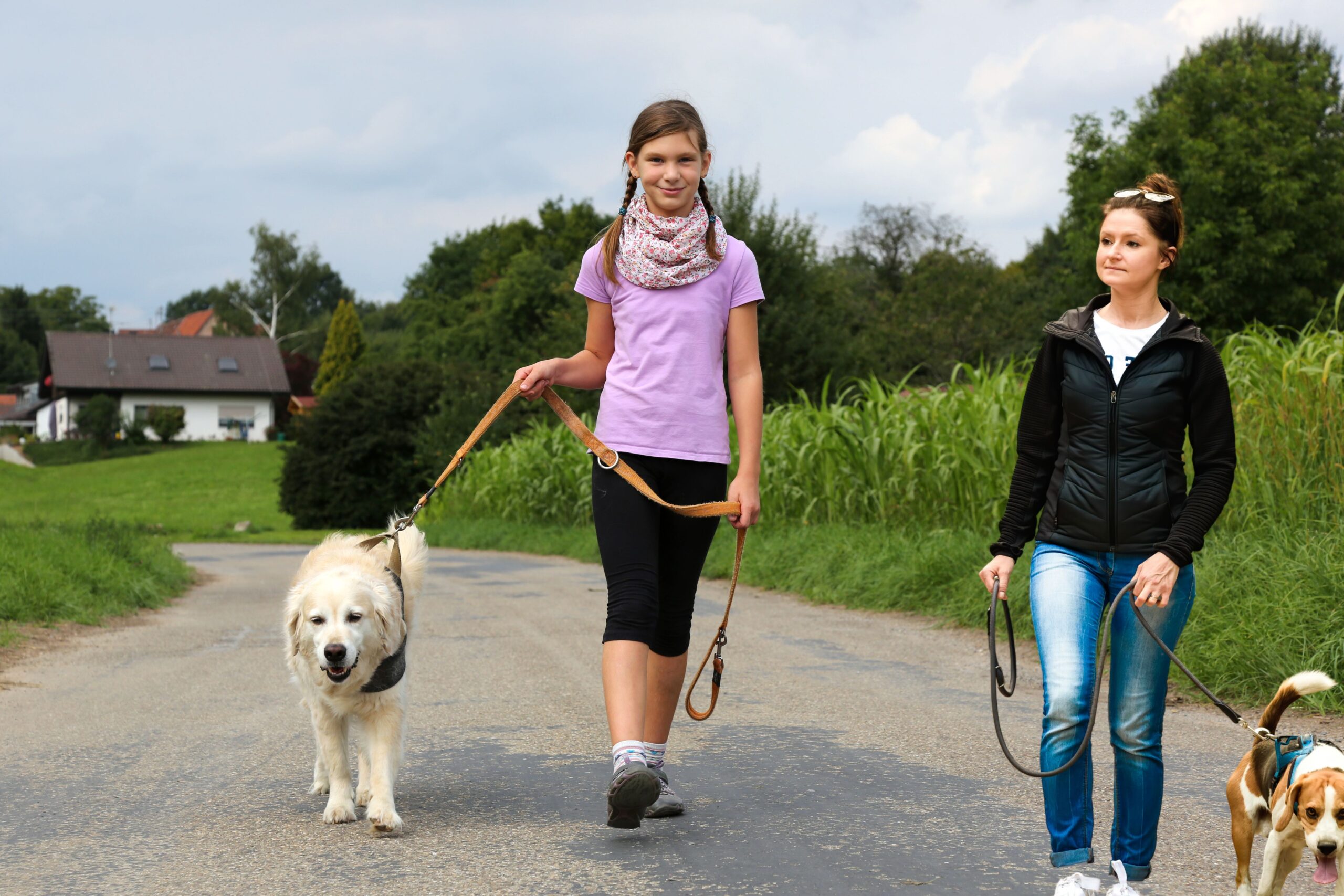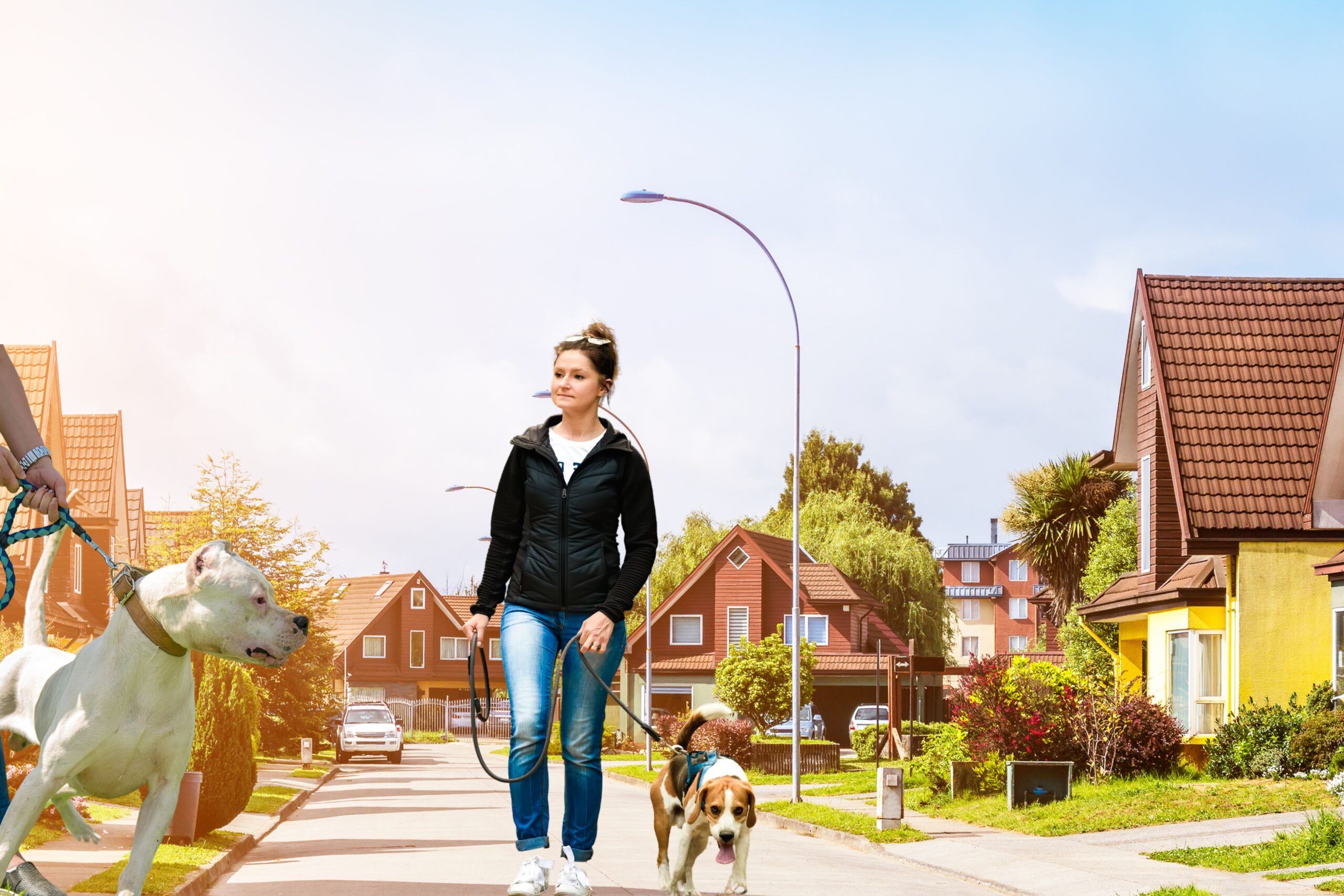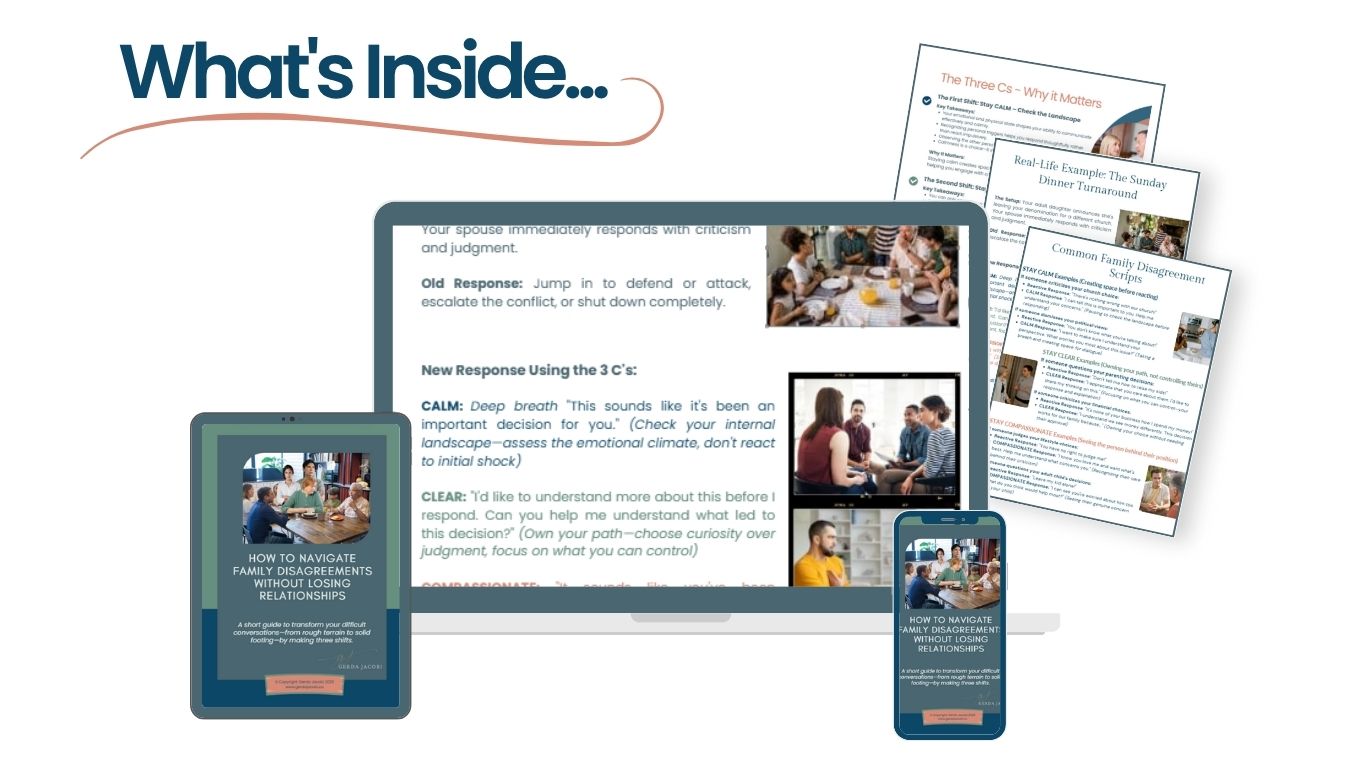On a recent walk with my two small dogs trotting beside me, I was reflecting on the challenges of having tough conversations in Christian communities. I'd just walked away from one of those difficult discussions on social media, where things had gone sideways—something that happens all too often online.
Have you ever been in a conversation that went off track?
Little did I know that a brief encounter on the path would provide a perfect metaphor for the very thing I was contemplating—and how even the small but unexpected moments can shape us and guide us through difficult conversations.
Let’s explore how reflections about something as ordinary as a dog walking encounter can help us navigate the difficult terrain of meaningful conversations.
When Paths Cross
As my dogs and I set out on our walk and rounded a bend, I spotted a man approaching with three dogs, including one particularly large one. The path didn't offer enough space to simply walk around them, so I instinctively scooped up my two little ones—a protective response resulting from past experiences.
"Don't worry, they're friendly," the man called out, pointing to his largest companion. "She thinks she's the same size as yours."
Pointing to the smaller of my two dogs I responded with a smile: "This one thinks she's as big as that one". We shared a laugh as we passed, continuing on our separate ways.
This brief, friendly exchange set my mind working on how dog encounters and human encounters have quite a bit in common. In both scenarios, we approach uncertain interactions carrying our histories, our fears, and our protective instincts. And in both, we have choices about how to prepare and respond - and that's where transformation begins, or where we often run into trouble when we're not adequately prepared and don't consciously make those crucial response choices.
Learning from Past Encounters
My instinct to pick up my dogs didn't come out of nowhere. It developed from past experiences—specifically, two troubling encounters where dogs were either supposedly 'friendly' or supposedly 'safe to be out in public' (much like some conversations that seem harmless until they suddenly aren't!).
The first happened on a trail in an open field. A young girl with a large farm dog confidently assured me that her dog was friendly. Trusting her confidence and belief in her dog, I let my small dog meet her dog—and in no time, her "friendly" dog had my small dog in its jaws. While the injury was minor, it was enough to change how I approached interactions with other dogs. My dog’s response to future encounters was never the same.
The second encounter was different. Years later, now with two small dogs, as we rounded a corner in a residential neighbourhood, I heard a young girl's panicked voice cry out, "No!!" as her large dog, loose on its leash, charged toward us, grabbing one of my small dogs by the hind leg. That encounter left us with a substantial vet bill and significant trauma.
Just as these experiences shaped my approach to dog walks, our past interactions—particularly difficult or painful ones—shape how we approach future discussions in our communities. A defensive reaction during a meeting, social event or in a social media conversation might seem disproportionate until you understand the painful history behind it, just as my quick move to scoop up my dogs might seem unnecessary to someone who hasn't experienced what I have.
Beyond Blame: Taking Responsibility
What strikes me now, reflecting on these incidents, is that neither was primarily about blame—though it would have been easy to point fingers. The issue was more about accepting responsibility.
In the first encounter, I chose to accept responsibility rather than blame the girl or her farm dog, although I might have been justified in doing so. She truly believed her dog was safe, and I trusted that judgment. However, it was a learning moment for me: despite someone's confidence, I realized that animals, like people, can act unpredictably, and we can't always judge their behavior solely based on past experiences or assurances. This experience taught me the importance of taking more personal ownership and responsibility for the situation, even when others seem confident.
The second incident felt different. It clearly pointed to a failure on the part of the dog’s handler, and I could reasonably assign responsibility here. This young girl seemed aware that her dog might not be safe with other dogs but lacked the necessary control and focused attention, which had real consequences. The trauma and the outcome left me with a different perspective on responsibility—while I didn’t want to assign blame unnecessarily in the first case, in this second instance, I felt the young girl may not have been the best person to walk that particular dog or perhaps needed to pay more attention to anticipating and managing the dog’s response.
But even here, I had to take responsibility for learning from this experience and making informed choices about how to move forward. Dwelling in blame would have been a no-win situation. Taking mutual responsibility created the possibility for learning on both sides.
I see the same pattern in difficult conversations. When something goes sideways in a conversation, whether in person or in social media, the responsibility might not be equally shared. Sometimes, like that second dog encounter, one person clearly bears more responsibility—perhaps the person entered the conversation with hostility or made deliberately critical or hurtful comments that seemed to come out of nowhere. Other times, like the first encounter, both parties entered with good intentions, but miscommunication or unexamined assumptions led to unexpected harm.
However, regardless of where primary responsibility lies, getting stuck in blame rarely leads to anything productive. Thinking back on my recent difficult conversation, I reflected that, even when I've been careful and thoughtful, I can't control the entire interaction. However, taking appropriate responsibility for my part—whether that's "I could have expressed that more carefully" or simply "I need to be more cautious about engaging in certain topics with this person"—creates space for better understanding and, when possible, repair. The goal isn't equal blame—and taking responsibility doesn't mean accepting equal "blame" (admittedly a loaded term)—but honest assessment and forward movement.
Unleashed Thoughts
As my dogs settled into their beds for a post-walk nap, I glanced over at them, peaceful and unbothered by mental meanderings. They don't overthink encounters with other dogs—they simply react, learn, and move on. They're probably wise—wiser than their humans sometimes.
Here I was, setting out for a simple morning stroll while pondering difficult conversations, and somehow ending up deep in the philosophical weeds of risk management, responsibility, and personal growth—all because a man with three dogs crossed our path.
These dog-walking reflections have stirred deeper questions—about how we approach challenging encounters, how we assess risk, and how we manage ourselves in the moment. In Part 2, we’ll explore how our personality shapes our instinctive responses to conflict—and how recognizing these patterns can transform the way we engage in difficult conversations.
Until then, I’ll keep walking and wondering, letting my thoughts dart and weave like winter hares across the snowy landscape. After all, there’s wisdom to be found in the most ordinary paths—if we’re willing to notice where they lead.
(Continued in Part 2: Approaching Challenging Encounters)



